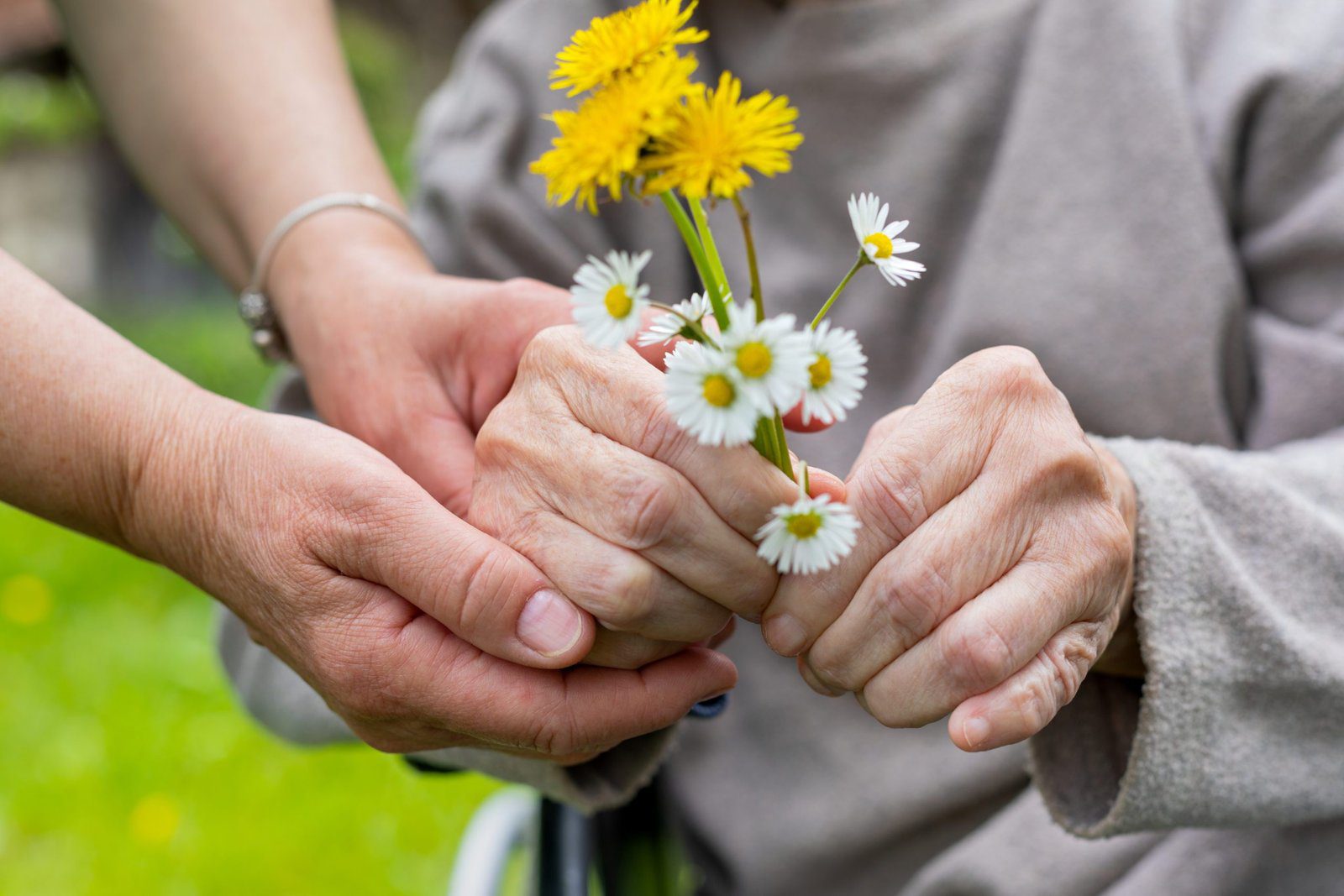As of this writing, mid-October 2020, virus restrictions are still in place for all of us, and my mother is still safe under the oversight of the Benton House and their protocols for quarantine.
We enjoy the twenty-minute visits we are allowed and make the most of them. On my most recent visit, I brought pictures of the latest sleepover with my grandchildren. I explained who each child is, but she seemed to have trouble maintaining interest.
I also brought along the photo album I made for her for Mother’s Day several years ago. She had no memory of any of the photos or the different places we lived.
And when we reached the page I titled, “Daddy’s Girl” with childhood photos of me and my father, she had no reaction. In the past, anytime we looked at photos of him, she would always say, “Oh, there’s Carl. I still miss him every day.”
Yesterday, no reaction at all.
When I was almost ready to leave, she asked my name. Making a joke of it, I said, “What’s your name?” She replied, laughing, she would not tell me, till I told me hers. She had no recollection of either of our names.
I told her I was her daughter, but no sign of awareness came into her eyes. At that moment, the supervisor returned, and the visit ended.
Next time I visit, she may very well remember. Such is the nature of dementia.
Later that afternoon, the hospice case worker called and said my mother was “having a good day” and was eating ice cream.
So that’s where we are on this journey.
My mother is safe and comfortable and enjoying good care in a community where she is loved.
Here are a few closing thoughts, a review of sorts from these chapters:
After my father died, my children and I huddled around my mother to see her through those early days, but eventually, we empowered her to be able to stay in her own home. And she came to enjoy those years, and times spent with our family, and her friends.
I am glad she was able to stay in her home as long as she did—10 more years after she became a widow. She took great pleasure in her yard, her daily rituals, and her church, which was close by.
I nudged in gradually, keeping watch on her finances as much as she would allow and often did damage control for her, and took care of overseeing major repairs, such as plumbing, and installing a new air conditioner.
However, I still second guess myself about whether or not I should have, for instance, hired a caregiver, and housekeeper sooner than I did. Whether or not she would have allowed this or how soon it was possible to “take the upper hand” I cannot know.
In these decisions I had to respect her boundaries and let her maintain her dignity, until her personal safety was involved.
I prayed every day the Lord would direct my steps and show me when and how to act. I made what preparations I could ahead of time, such as investigating assisted living places, and then waited, managing daily crises as they unfolded.
In conclusion, let me remind you:
Get your legal documents in order. Do not wait, thinking the discussion about this might be unpleasant. It is such a comfort to have everything you need in hand once you’re looking hospital ER staff in the eye.
If you suspect dementia in your loved one, schedule an appointment with a doctor as soon as possible. Get a baseline diagnosis, so you will know when you are getting near to having to act on your loved one’s behalf.
If you feel they are in danger of hurting themselves on the highways, take their keys and/or their car. They will be furious with you, but you are legally responsible for them. You do not want them to hurt themselves or anyone else.
Besides that, you don’t want them to be able to drive off and get lost.
Remember they cannot remember. It does no good to ask. Be patient when they tell the same story over and over or ask the same question over and over.
Take care of the simple comforts you can provide.
Ask for help for yourself when you need it. Other people have been down this road before you and they are glad to help.
Your parent may eventually become “your child.” Treat your father or mother with the dignity and kindness they deserve.
But be firm.
They are counting on you for their safety and well-being.
And if they had the mental capacity to do so, they would thank you.
Besides “honor thy father and mother,” which I’ve tried to do my whole life, my guiding principle during this years-long journey has been to ask myself, “If my father were here, what would he do for my mother in this situation?”
On that basis and with that confidence, I have peace in my heart I have taken all the right steps and that both my Heavenly Father and my earthly father are pleased with what I have done.





I think it’s time for you to put this into “booklet” form. I’m sure others have done so, but I so appreciate your point of view, biblically and emotionally.
To me, the saddest part is when they no longer have any kind of reaction to a person or to a photo, such as you were showing your mom. You are handling it with such grace and wisdom, Holly. Thank you for sharing this with us.
This is excellent advice.
Holly I agree totally with Judy in comment above, this is very valuable information and somany will have to walk where you have walked without any information. Thank you for once again opening up to all of us who read your stories Thank you Thank you, My parents and my husbands parents have been deceased for many years we will not have to walk this path but our children may and I would love for them to read these stories.